AS TALES of corruption, drugs, prostitution and gambling spilt out each day from the Fitzgerald Inquiry, Queenslanders were intrigued by how many crooks, cops and politicians might end up behind bars.
But for Mike Ahern, who took over from Joh Bjelke-Petersen as Queensland premier in late 1987 at the height of the inquiry, Tony Fitzgerald was always working towards something bigger.
“The inquiry wasn’t intended to chase people for convictions, it was intended to change the culture,” Mr Ahern told The Courier-Mail.
Mr Ahern famously committed to implementing all Fitzgerald’s recommendations “lock, stock and barrel” and said it provided the template for changing the culture of policing and politics in Queensland.
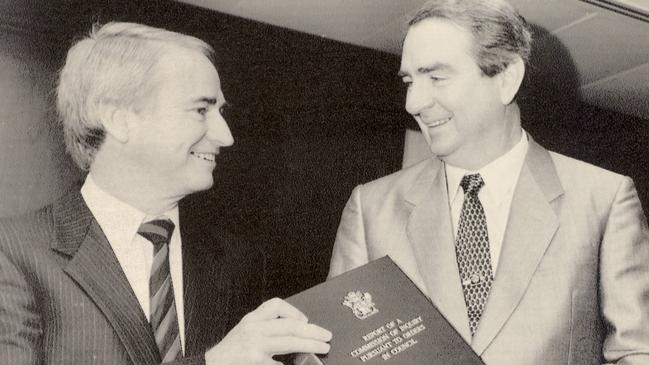
Mr Ahern said his first decision after receiving the report on July 3, 1989, was to establish a public accounts committee.
“That ensconced in the record here in Queensland an acceptance of the separation of powers between the executive and the parliament and the judiciary,” he said.
Among the sweeping changes that followed were the creation of the Criminal Justice Commission (now known as the Crime and Corruption Commission) to review corruption and oversee police misconduct complaints.
The Electoral and Administrative Review Commission was also established and among its functions was to review the gerrymandered electoral boundaries.
In the fallout of the inquiry, government ministers were jailed along with former Police Commissioner Terry Lewis and several officers.
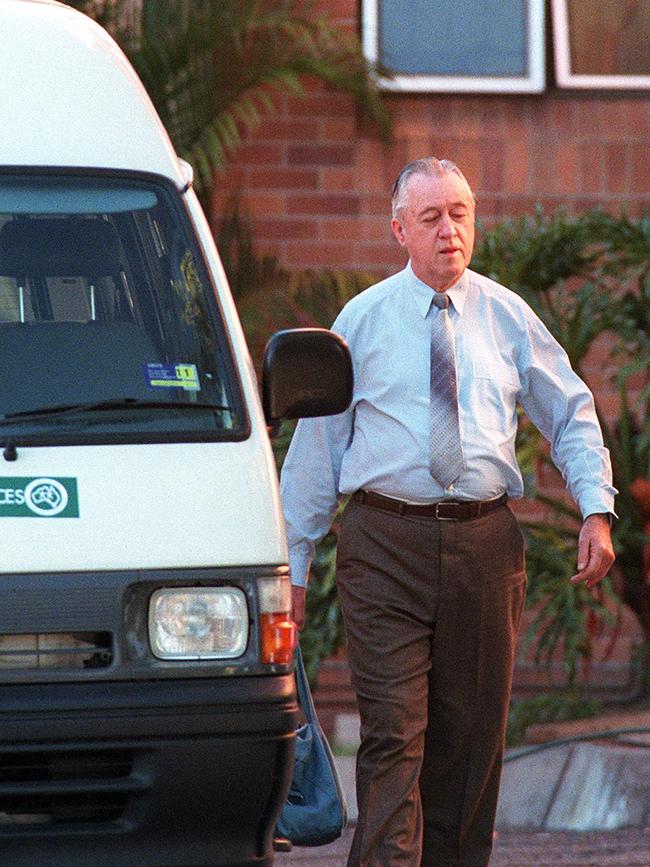
The Special Branch of the police service, which monitored activists and was used as a political tool, was disbanded.
Fitzgerald said the Queensland Police Force was “debilitated by misconduct, inefficiency, incompetence, and deficient leadership”.
“The situation is compounded by poor organisation and administration, inadequate resources, and insufficiently developed techniques and skills for the task of law enforcement in a modem complex society,” he wrote.
“Lack of discipline, cynicism, disinterest, frustration, anger and low esteem are the result.”
Queensland’s Police Force was renamed to the Queensland Police Service in 1990.
Bond University criminologist and former police detective Terry Goldsworthy, who graduated in 1986 before the inquiry began, said he remembered changes to the electronic recording of interviews post-Fitzgerald.
Performance management and accountability measures were introduced as part of the groundbreaking restructure.
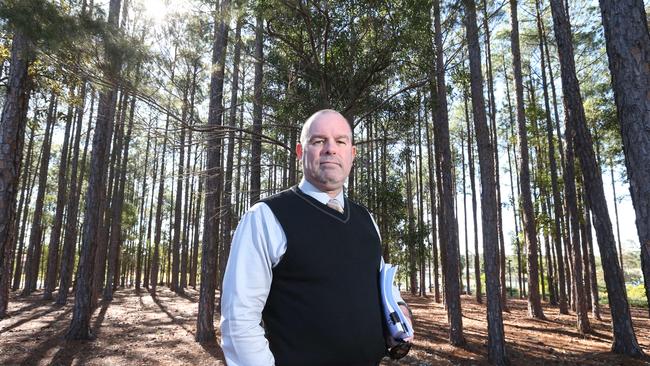
While culture had improved, scandals included the Dangerous Liaisons report in 2009 which implicated 25 officers in misconduct for cases that included offering cash and sex to informants.
“After the inquiry we became more professional, in that we recorded records of interview rather than typed them which was the way when I first came in,” Mr Goldsworthy said.
“One of the issues to come out of Fitzgerald was basically a number of police were just typing the whole interview without even asking questions and doing what we call verballing or bricking a suspect, putting the answers in their mouth and put that forward as a confession.”
The government says other reforms to the service include body-worn cameras for police; a new police discipline system; and a program named Juniper that gives officers confidentiality to report bullying, discrimination, sexual harassment and predatory behaviour.
Outgoing Police Commissioner Ian Stewart said the service had improved “year on year” since the Fitzgerald Inquiry.
He said police needed to be absolutely vigilant to never slip back into pre-Fitzgerald standards.
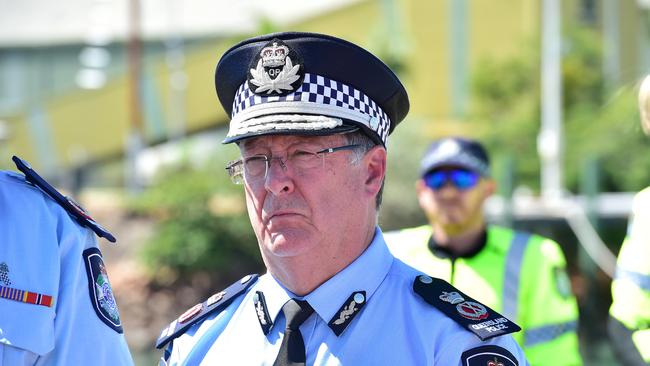
“There was, I think, a lack of standards and a lack of leadership at that time, at the highest levels, that took us down a particular path and allowed people to justify basically criminal actions,” he said.
But despite reforms to the service since Fitzgerald, Mr Stewart said there were bad apples within the service he would have sacked if he was able to.
Mr Stewart fought for commissioner’s confidence powers — to personally sack an officer he believed was unfit for duty — but was unable to convince either Labor or LNP governments for the legislative changes.
“If I have disappointments it’s around people who are still in this job who have been dealt with by our processes who I just don’t think meet the standards that the community really expect of us,” he said.
Crime and Corruption Commission chair Alan MacSporran QC this week said: “I’m confident the brazen corruption and police misconduct of the old days are gone.”
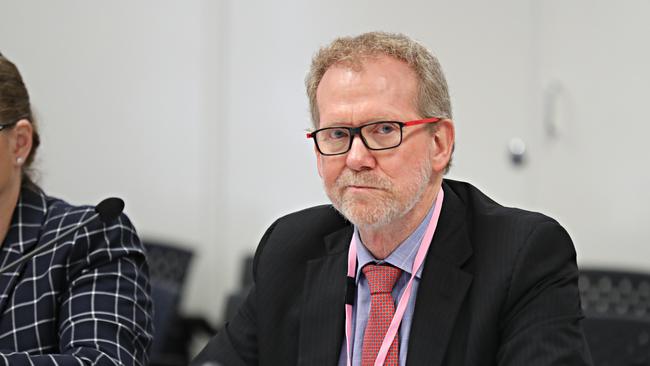
On the parliamentary front, reforms started by Ahern in mid-1989 were taken over by Wayne Goss six months later when he led Labor back to power after 32 years in the wilderness.
Goss moved swiftly on the Fitzgerald recommendations including introducing Freedom of Information (now Right to Information) laws and scrutiny of parliamentarians’ pecuniary interests.
A raft of other important oversight functions such as creating a committee system for reviewing legislation and estimates hearings have followed, all traceable back to the Fitzgerald principles.
Premier Annastacia Palaszczuk said Fitzgerald didn’t just catch corruption but set up a system that has continued exposing it in Queensland for the past 30 years.
“Back then, there was no internet and yet Fitzgerald set up the Crime and Corruption Commission (formerly the CJC) that now hunts the scammers and child predators who exist on it,” she said.
“That’s how farsighted Fitzgerald was.
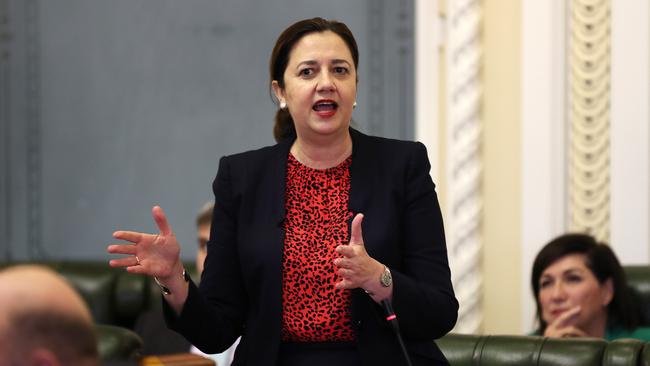
“He recommended the parliamentary committee system that has guided laws on everything from road safety to currently hearing from people across the state about aged and end of life care.”
The oversight bodies are key in Queensland’s unicameral parliament however both sides of politics have been accused of failing to live up to the principles of oversight over the years.
Opposition Leader Deb Frecklington said the Fitzgerald reforms were designed for the “generations to come” but only remained relevant if politicians were accountable and transparent.
She worries that a creeping erosion of the principles could happen if oppositions don’t “jump up and down” when they see questionable things happening.
Ms Frecklington says her team has raised the alarm over actions such as the Government changing voting laws in 2016 after only 18 minutes of debate in parliament; Transport Minister Mark Bailey’s use of his personal mangocube email; estimates hearings being shut down by committee chairmen and reduced parliamentary hours and debate times.
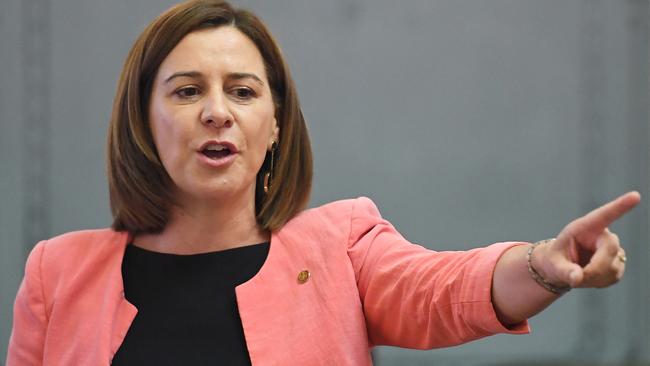
Ms Palaszczuk said her government had “tried to live up to Fitzgerald’s high standards”.
“For example, we believe everyone should know who is contributing money to political parties and candidates and passed nation-leading laws to ensure those donations are no longer kept secret and are known in real time,” she said.
She pointed to actions of the former LNP Government such as reducing the estimates process to two days and sacking an entire parliamentary committee as eroding the spirit of Fitzgerald and contributing to their electoral demise.
Mr Ahern said despite Fitzgerald delivering a “game changer” to Queensland, reform was always a work in progress because “you can never get to the ideal goal”.
“The critical issue is keeping your eye on the ball and saying what’s in this for Queensland in the end,” he said.
“Has it just been an exciting read, a sort of a real time novel, or a formula for a new culture going forward?”
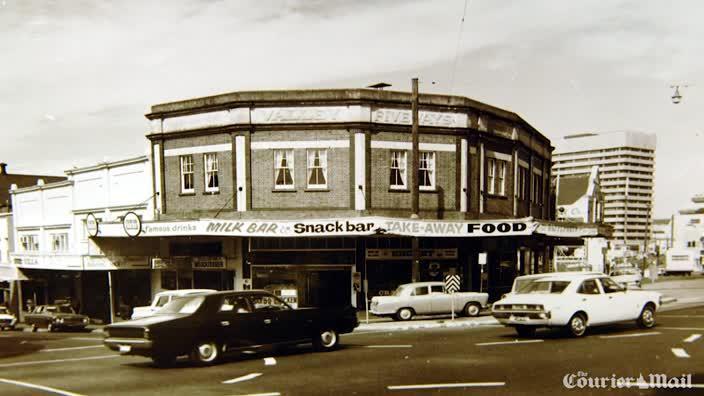

Add your comment to this story
To join the conversation, please log in. Don't have an account? Register
Join the conversation, you are commenting as Logout
The lie that cost underworld figure his life
When Carl Williams lied about Michael Marshall’s involvement in a contract killing, he as good as signed the hotdog salesman’s death warrant.
Lunchtime jewel heist which rocked Sydney’s CBD
In what was considered the biggest jewellery heist of the first half of the 20th century, in 1947 a thief managed to steal jewels worth about $600k today. But his glory was short-lived.